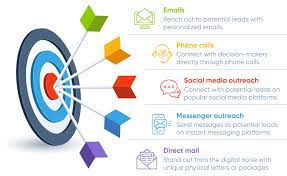All you need to know about human resource consultants

Human resource consultants are professionals or firms that provide specialized advisory and consulting services to organizations in managing their human resources (HR) functions effectively.
They are crucial in helping businesses optimize their workforce, improve HR processes, and navigate complex HR-related challenges.
Here are some key aspects of human resource consulting:
Recruitment and Staffing:
HR consultants assist organizations in finding and hiring the right talent for their specific needs. This includes developing job descriptions, conducting candidate searches, interviewing candidates, and assisting with onboarding.
Talent Management:
They help organizations develop strategies for talent retention, employee engagement, and career development. This can involve performance management, succession planning, and leadership development programs.
HR Policies and Compliance:
Consultants can help businesses create and update HR policies, ensuring they comply with local labor laws and regulations. They can also guide handling workplace issues, such as employee disputes or disciplinary actions.
Compensation and Benefits:
HR consultants assist in designing competitive compensation and benefits packages that attract and retain top talent while aligning with the organization’s budget and goals.
Organizational Development:
They work with companies to improve organizational structure and efficiency, including restructuring, change management, and culture development.

Training and Development:
HR consultants design and deliver training programs to enhance employee skills and knowledge, improving overall performance.
Employee Relations:
They offer guidance on managing employee relations issues, such as grievances, conflict resolution, and workplace investigations.
HR Technology:
Consultants can advise on HR software selection and implementation, helping organizations streamline HR processes and improve data management.
Outsourcing and Offshoring:
Some HR consultants specialize in helping companies outsource HR functions or set up offshore HR teams to reduce costs and increase efficiency.
Compliance and Risk Management:
They assist in identifying and mitigating HR-related risks and ensuring compliance with labor laws and regulations to avoid legal issues.
Strategic Planning:
HR consultants work closely with top management to align HR strategies with business strategies, helping organizations achieve their long-term goals.
Diversity and Inclusion:
Inclusion and diversity are increasingly critical aspects of HR. Consultants may help organizations develop and implement strategies to foster diverse and inclusive workplaces.
HR consultants can be independent freelancers or work for consulting firms. Their services are often tailored to meet each client’s specific needs, and they can be engaged for short-term projects or long-term partnerships.
Organizations often turn to HR consultants when they lack the in-house expertise or resources to address complex HR challenges or need an objective perspective on their HR practices.
Human resource services, or human resources services, encompass a wide range of functions and activities to manage and optimize an organization’s workforce. These services are crucial for attracting, retaining, developing, and effectively utilizing employees to achieve an organization’s goals. Here are some of the essential HR services provided by HR departments or HR consulting firms:
- Recruitment and Talent Acquisition:
- Job analysis and description development.
- Candidate sourcing and screening.
- Interviewing and selection.
- Background checks and reference verification.
- Onboarding and orientation of new employees.
- Employee Relations:
- Handling employee grievances and conflicts.
- Mediating workplace disputes.
- Conducting investigations into allegations of misconduct.
- Implementing policies and procedures to promote a positive work environment.
- Performance Management:
- Setting performance expectations and goals.
- Conducting performance appraisals and evaluations.
- Providing feedback and coaching to employees.
- Developing performance improvement plans.
- Training and Development:
- Identifying employee training needs.
- Designing and delivering training programs.
- Career development planning.
- Leadership and skills development.
- Compensation and Benefits:
- Designing and managing compensation structures.
- Administering employee benefits programs (healthcare, retirement plans, etc.).
- Salary benchmarking and market analysis.
- Ensuring compliance with wage and hour laws.
- Workforce Planning and Analytics:
- Forecasting staffing needs.
- Succession planning.
- Workforce data analysis to make informed decisions.
- HR metrics and reporting.
- HR Technology and Systems:
- Implementing and maintaining HRIS (Human Resources Information Systems).
- Managing employee data and records.
- Automating HR processes (e.g., payroll processing, time tracking).
- Compliance and Legal:
- Ensuring compliance with labor laws and regulations.
- Developing and updating HR policies and procedures.
- Handling issues related to workplace discrimination, harassment, and employee rights.
- Health and Safety:
- Developing workplace safety policies.
- Conducting safety training.
- Managing worker’s compensation claims.
- Ensuring compliance with occupational health and safety regulations.
- Employee Engagement and Culture:
- Conducting employee surveys and feedback sessions.
- Developing initiatives to improve employee morale and engagement.
- Fostering a positive workplace culture.
- Termination and Offboarding:
- Managing employee terminations.
- Exit interviews and feedback collection.
- COBRA (Consolidated Omnibus Budget Reconciliation Act) administration.
- Global HR Services:
- Managing international HR issues.
- Ensuring compliance with global labor laws and regulations.
- Handling international payroll and benefits.
- Diversity and Inclusion:
- Promoting diversity and inclusion initiatives.
- Tracking diversity metrics.
- Providing diversity training and education.
- Employee Wellness Programs:
- Implementing health and wellness initiatives.
- Employee assistance programs (EAPs).
- Mental health support and resources.
Human resource services are crucial for maintaining a productive and engaged workforce while ensuring legal compliance and a positive workplace culture. The specific services an organization requires may vary depending on its size, industry, and unique HR needs.
Many organizations either manage these services internally through their HR department or outsource them to HR consulting firms to gain access to specialized expertise and resources.



